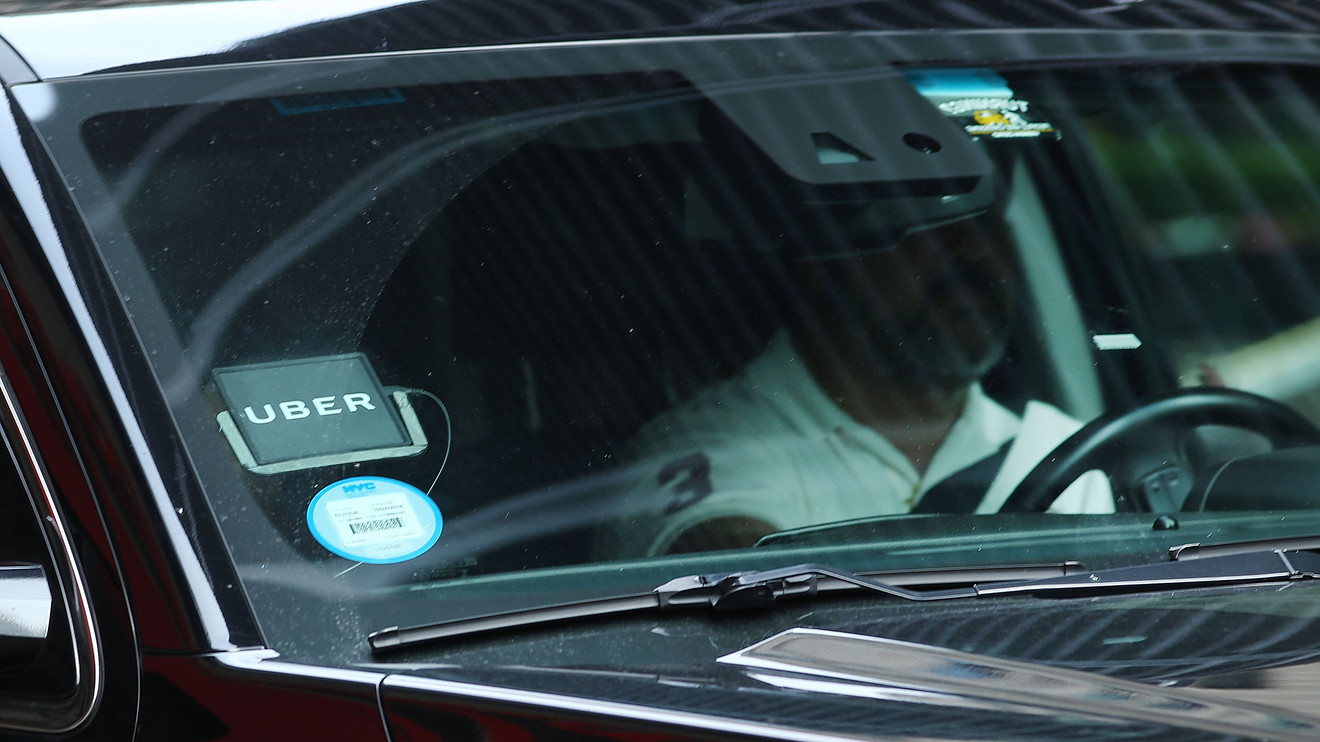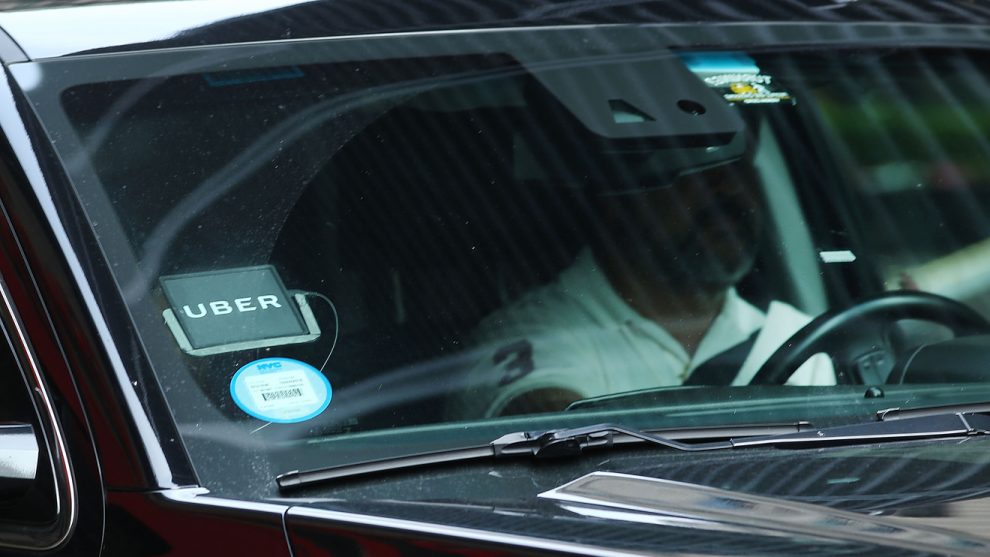
Uber is fighting against drivers who want to be categorized as employees — and whether it succeeds could have major implications for the gig economy.
Uber filed an S-1 form for an initial public offering late Thursday. In the document, the company stated, “We believe that drivers are independent contractors because, among other things, they can choose whether, when, and where to provide services on our platform, are free to provide services on our competitors’ platforms, and provide a vehicle to perform services on our platform.”
But it also issued a warning: “Nevertheless, we may not be successful in defending the independent contractor status of drivers in some or all jurisdictions. Furthermore, the costs associated with defending, settling, or resolving pending and future lawsuits (including demands for arbitration) relating to the independent contractor status of drivers could be material to our business.”
In March 2019, for example, Uber said it reached a preliminary settlement in two class-action cases. The company agreed to pay $20 million to drivers who contracted with Uber in California and Massachusetts but with whom it had not entered into arbitration agreements, and who sought damages against Uber “based on independent contractor misclassification, among other claims,” according to the IPO document.
Don’t miss: Uber, 2 years after getting spanked, acts like a grown-up in its IPO
Uber has been battling the contractor versus employee court cases in multiple countries. Last month, the Paris Court of Appeal ruled that an Uber driver had a work contract, undermining the company’s claims that its drivers are contractors rather than employees. Last December, the U.K.’s Supreme Court also upheld an earlier court ruling that Uber drivers should be classified as workers rather than contractors.
But a U.S. district judge in Philadelphia ruled last year that Uber drivers are contractors, not employees, under federal law. Being classified as a worker entitles a person to more rights than an independent contractor, namely a minimum wage, but not as many as an employee. Uber had argued that drivers were self-employed, and said it plans to continue appealing the case up to the U.K. Supreme Court.
In the U.S., Uber has asserted that its drivers are self-employed. In fact, it’s gone one step further: The ride-share company believes it is merely the go-between drivers and riders and argues that drivers are independent contractors and, therefore, the company’s actual customers. The company told MarketWatch that the Securities and Exchange Commission has signed off on this business model.
Read more: A quarter of American drivers might be better off using Uber or Lyft than owning a car
How Uber’s strategy affects workers in the gig economy
The difference between being an employee versus an independent contractor is significant, said Keith Cunningham-Parmeter, a professor at Willamette University College of Law. “Depending on which side of the line you fall on, you either get this huge basket of rights or basically nothing,” Cunningham-Parmeter said.
Most employment rights do not extend to independent contractors. For instance, companies are not required to pay independent contractors a minimum wage or overtime, provide them health insurance or give them regularly scheduled breaks.
But the differences between rights someone is an entitled to as an employee — but not as an independent contractor — can be even more mundane. Independent contractors are responsible for paying their own taxes. And independent contractors aren’t necessarily entitled to unemployment or workers’ compensation unless they have paid into those funds themselves.
Recommended: The government has no idea how many gig workers there are, and that’s a problem
The divide between independent contractors and employees has taken on a renewed significance in recent months as allegations of sexual harassment in the workplace have cropped up increasingly across the country.
Federal discrimination laws only applies to employees, according to Workplace Fairness, a nonprofit public education and advocacy organization. And just a few states grant discrimination protections to independent contractors. Meanwhile, the nature of the jobs these people perform often puts them at a greater risk of harassment.
Also see: How Uber and Lyft riders can stay safe after Samantha Josephson’s murder
Becoming an employee is not without its own drawbacks. Namely, workers in the gig economy would lose a lot of the freedoms they enjoy versus a traditional worker. For instance, Uber might be more stringent in terms of the quality of cars that a driver could operate. More important, Uber drivers might lose the ability to set their own hours if they were to become employees.
But even these seemingly beneficial aspects to working for a company like Uber have their downsides. One study co-conducted by Uber found that drivers’ wages don’t really change regardless of whether fares are hiked or lowered because of how easily drivers and riders alike can opt out of using the app throughout the day.
The issue extends beyond Uber
Uber drivers are not the only ones facing these challenges. In 2016, FedEx FDX, +2.65% agreed to pay 12,000 drivers in 20 states $240 million to settle lawsuits from drivers who claimed they were misclassified as independent contractors instead of employees. The first of these lawsuits had been filed in 2005. “We could see a similar pattern with Uber and the other on-demand platforms,” said Cunningham-Parmeter.
Other more typical gig-economy employers have encountered similar legal snafus. Ride-sharing service Lyft, food delivery service GrubHub GRUB, -5.76% and courier service Postmates have all been sued for classifying their workers as independent contractors rather than employees.
Also read: Here’s where you’ll live when self-driving cars rule the roads
While most companies in the gig economy continue to use this approach, at least one has taken a different tack. In 2015, grocery delivery service Instacart began reclassifying some of its workers as part-time employees, and the company reached a $4.6 million settlement this year with other workers who argued they were misclassified as independent contractors.
Such cases should serve as a warning to Uber to avoid regulatory and legal scrutiny and potentially large settlements, while benefiting workers. “Right now there’s a big question mark hanging over Uber,” Cunningham-Parmeter said.
(This story was updated on April 12, 2019.)
Want news about Europe delivered to your inbox? Subscribe to MarketWatch’s free Europe Daily newsletter. Sign up here.













